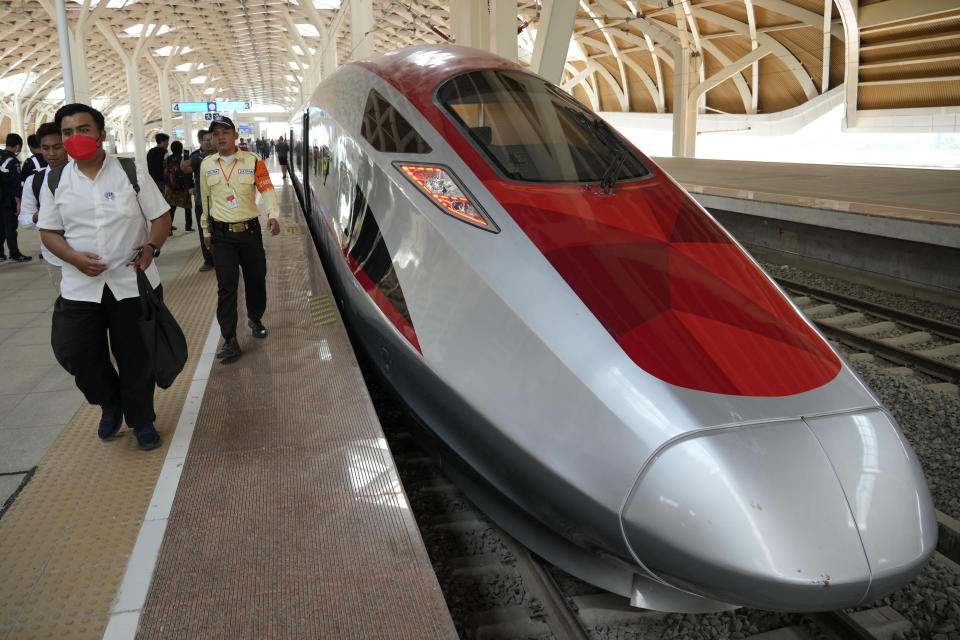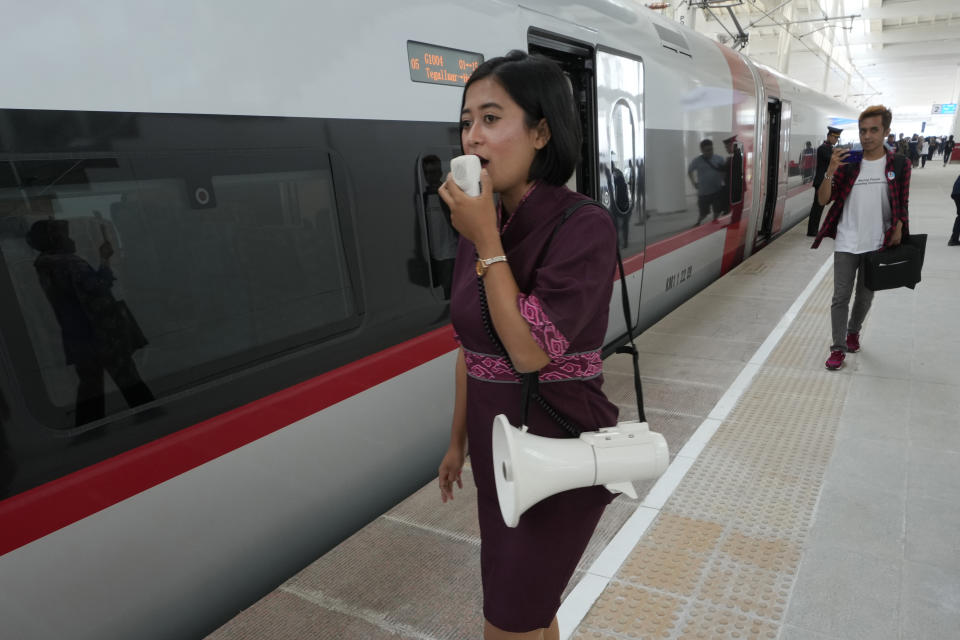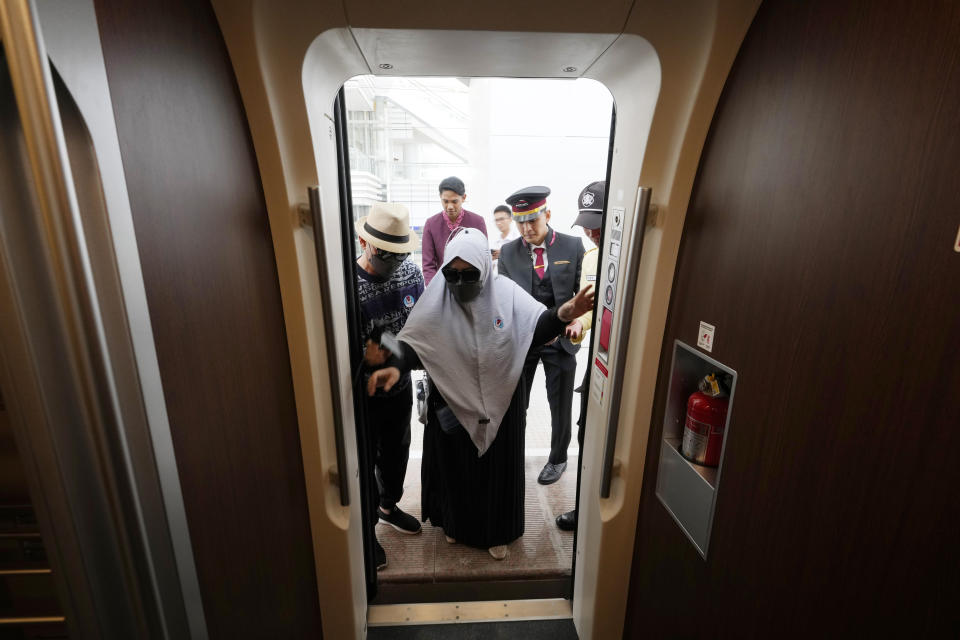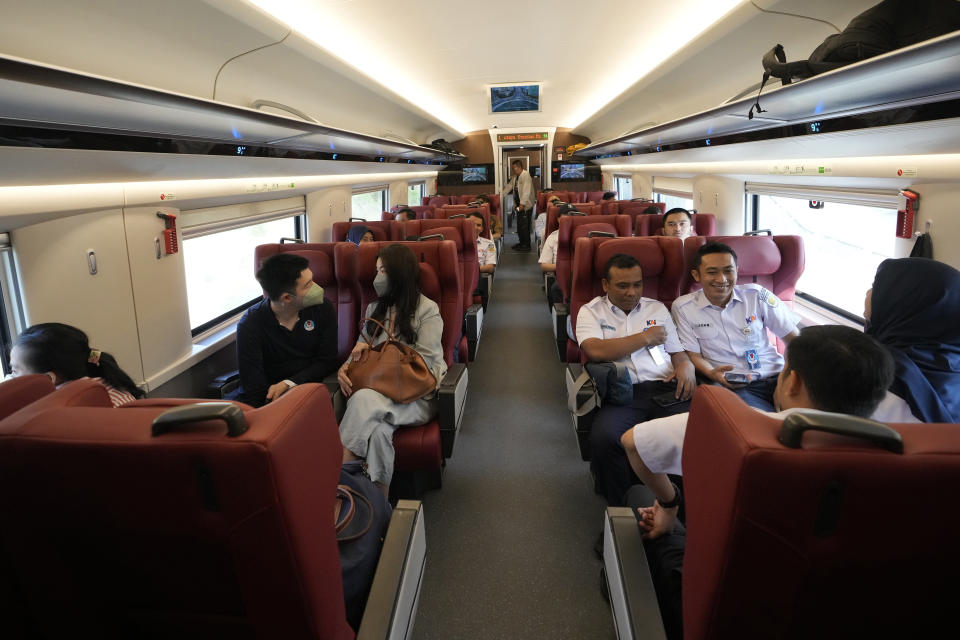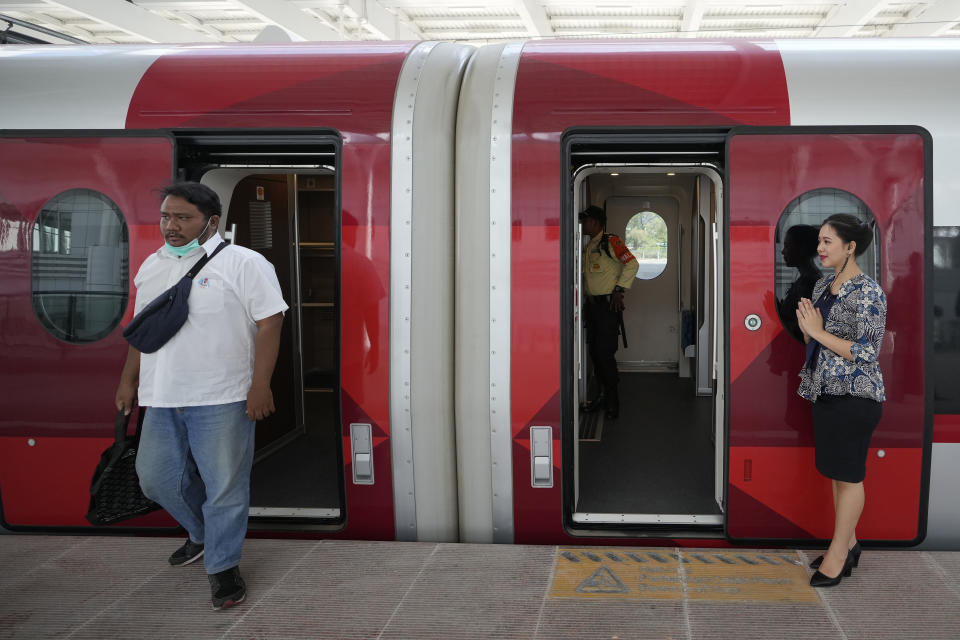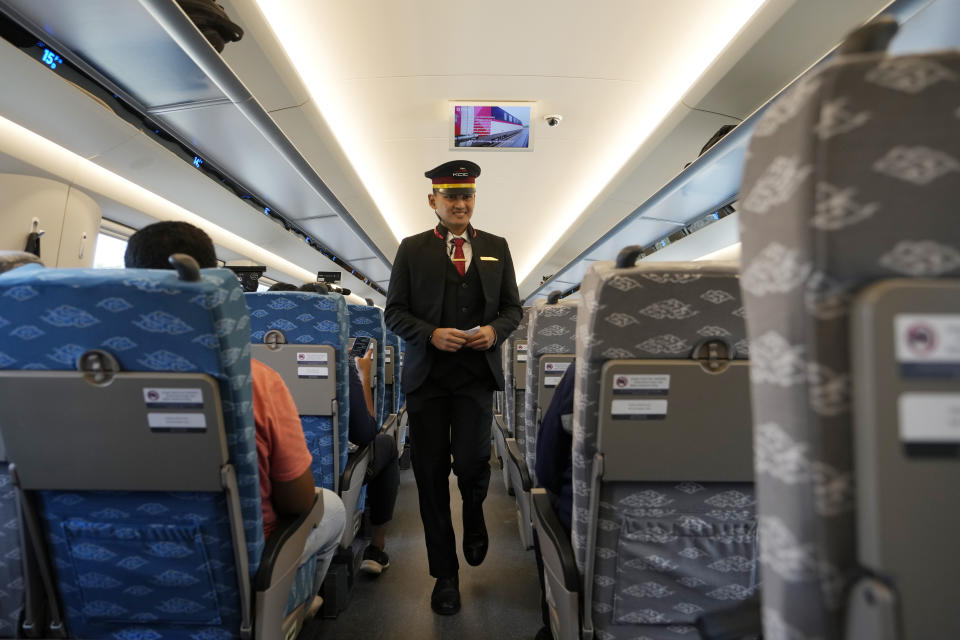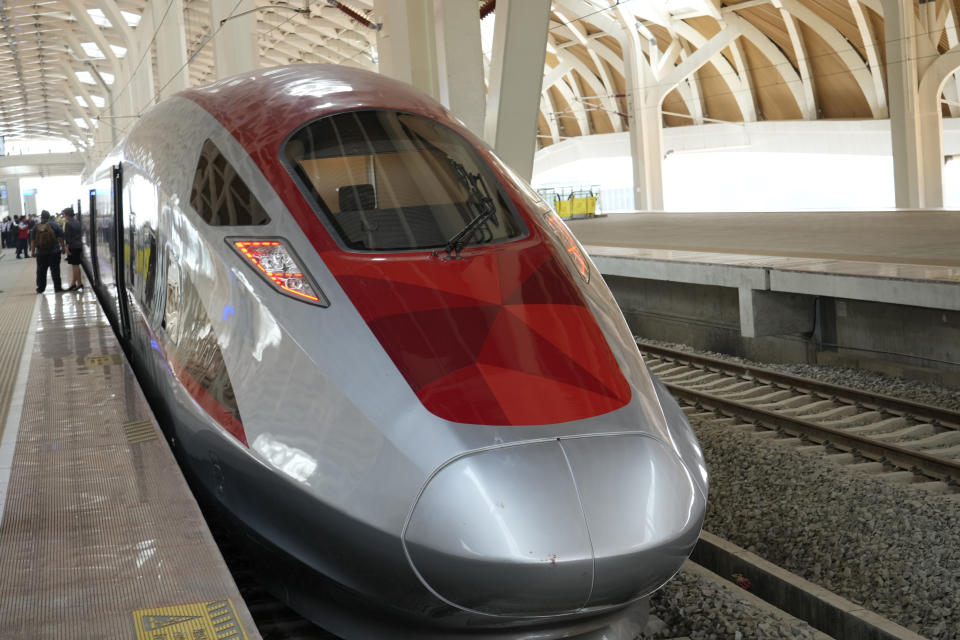JAKARTA, Indonesia (AP) — Indonesia is launching Southeast Asia’s first high-speed railway, a key project under China’s Belt and Road infrastructure initiative that will cut travel time between the capital and another major city from the current three hours to about 40 minutes.
The project has been beset with delays and increasing costs, and some observers doubt its commercial benefit, but President Joko Widodo has championed it and will be inaugurating the 142.3-kilometer (88.4-mile) railway as it begins commercial operations Monday.
The Chinese-made bullet train, called “Whoosh,” will connect Jakarta with Bandung, the heavily populated capital of West Java province. Widodo, along with other high-ranking officials, is expected to ride the Whoosh from its first station, Halim KCBJ in eastern Jakarta to Bandung’s Tegalluar station, the last of the line's four stations.
The $7.3 billion project, largely funded by China, was constructed by PT Kereta Cepat Indonesia-China, known as PT KCIC, a joint venture between an Indonesian consortium of four state-owned companies and China Railway International Co. Ltd. The joint venture said the trains will be the fastest in Southeast Asia, with speeds of up to 350 kph (217 mph).
Luhut Binsar Pandjaitan, the coordinating minister for maritime and investment, said China Railway has agreed to transfer its technology to Indonesia so that in the future the country’s high-speed trains can be made domestically.
Chinese Premier Li Qiang took a test ride early last month while visiting Jakarta for three days of talks with leaders of the Association of Southeast Asia Nations and other countries.
Li rode the train from Halim KCBJ station to the next station ,in West Java’s Karawang city, a 40-kilometer (25-mile) ride that took about 11 minutes. He then returned on the same train.
Widodo took a 25-minutes test ride on the train a week later and told reporters that he felt comfortable sitting or walking inside the bullet train even at its top speeds. He urged people to switch from cars to mass transportation to reduce congestion and pollution, adding that congestion in Jakarta and Bandung is estimated to cost the economy more than $6.5 billion a year.
PT KCIC has also been running a two-week, free-of-charge public trial prior to the inauguration.
Indonesia broke ground on the project in 2016. The line was originally expected to begin operations in 2019, but was delayed by disputes over land acquisition, environmental issues and the COVID-19 pandemic. It was planned to cost 66.7 trillion rupiah ($4.3 billion), but the amount ballooned to 113 trillion rupiah ($7.3 billion).

